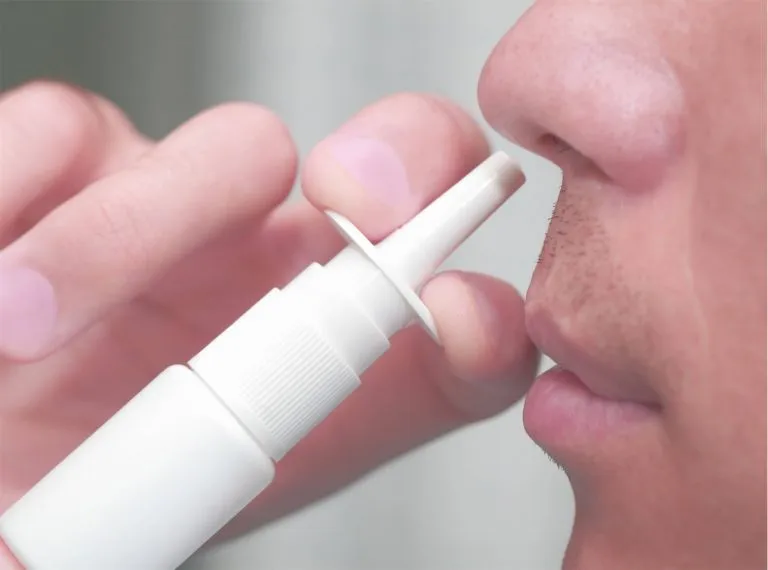Caregiver Stress May Increase Hypertension Risk in Black Women
Caregiving is a demanding and often thankless role, which can have profound implications on a person’s mental and physical health. While caregivers provide essential support to loved ones, the stress of caregiving can take a significant toll on the caregiver themselves. One of the most concerning health outcomes associated with prolonged caregiver stress is an increased risk of hypertension, or high blood pressure. This issue is particularly relevant to Black women, who are already at an elevated risk for hypertension due to a combination of genetic, environmental, and socio-economic factors. In this article, we will explore the relationship between caregiver stress and hypertension, with a focus on the unique challenges faced by Black women. We will discuss how caregiver stress contributes to hypertension, the impact it has on health, and potential strategies for managing and reducing this risk.
The Nature of Caregiver Stress
Caregiver stress arises when an individual provides care for a family member or loved one who is ill, disabled, or elderly. It often involves physical, emotional, and mental demands that can overwhelm the caregiver. Caregivers may be responsible for tasks such as managing medications, providing physical assistance, offering emotional support, and making healthcare decisions. The stress associated with these responsibilities can accumulate over time, particularly if the caregiving role is long-term or if the caregiver has limited support.
Caregiver stress can take on many forms, including physical exhaustion, emotional burnout, anxiety, depression, and chronic worry. The emotional burden of seeing a loved one suffer or decline in health, combined with the daily demands of caregiving, can significantly affect the caregiver’s well-being. Unfortunately, the stress experienced by caregivers often goes unrecognized or is dismissed as part of the job. As a result, caregivers may not seek help or make time for self-care, exacerbating the negative effects on their health.
Hypertension and Its Impact on Health
Hypertension, or high blood pressure, is a medical condition where the force of the blood against the walls of the arteries is consistently too high. Hypertension is a significant risk factor for heart disease, stroke, kidney disease, and other serious health conditions. It is often called the “silent killer” because it typically has no symptoms until it causes severe damage to the cardiovascular system. Long-term uncontrolled hypertension can lead to complications such as heart failure, heart attack, aneurysms, and damage to the kidneys and eyes.
Hypertension affects millions of people worldwide, but certain populations are at higher risk. Black women, in particular, are disproportionately affected by hypertension, with studies showing that they are more likely to develop high blood pressure at an earlier age compared to other groups. Additionally, Black women are more likely to experience complications related to hypertension, including heart disease and stroke. The reasons for this disparity are complex and involve a combination of genetic, environmental, and socio-economic factors.
The Link Between Caregiver Stress and Hypertension in Black Women
Research has shown that caregiver stress is associated with an increased risk of developing hypertension. Caregivers often experience elevated blood pressure due to the chronic stress associated with their caregiving role. The constant physical and emotional strain can trigger the body’s “fight or flight” response, which increases the production of stress hormones such as cortisol and adrenaline. These hormones cause the heart to beat faster, the blood vessels to constrict, and blood pressure to rise. Over time, this chronic activation of the stress response can lead to sustained hypertension, which places the caregiver at greater risk for cardiovascular problems.
For Black women, the impact of caregiver stress on hypertension may be particularly pronounced due to a combination of factors that heighten their vulnerability to both stress and high blood pressure. Black women face unique stressors, including systemic racism, discrimination, and socio-economic challenges, all of which can contribute to higher levels of chronic stress. These stressors can compound the emotional and physical burden of caregiving, exacerbating the risk of hypertension.
Socioeconomic Factors and Health Disparities
Black women in the United States are more likely to face economic hardships, including lower income, limited access to healthcare, and fewer opportunities for professional or educational advancement. These factors contribute to the cumulative stress that Black women experience, both as caregivers and in their daily lives. Financial strain, limited access to resources, and the absence of supportive social networks can make caregiving even more difficult. The added burden of socio-economic disadvantages increases the likelihood that Black women may experience long-term caregiver stress, which in turn raises the risk of hypertension.
Additionally, Black women are more likely to live in environments with high levels of pollution, food insecurity, and poor healthcare access—factors that exacerbate both stress and hypertension. These systemic challenges make it even more difficult for Black women to manage their health and seek out the necessary resources for support.
Genetic Factors
There is also a genetic component to hypertension, particularly in Black women. Research suggests that Black individuals may have a genetic predisposition to high blood pressure, which makes them more susceptible to the condition. When combined with the additional stressors associated with caregiving and systemic inequalities, these genetic factors may increase the likelihood of developing hypertension.
The Physical and Emotional Toll of Caregiver Stress on Black Women
The physical and emotional toll of caregiving is significant. Black women often experience high levels of stress due to the demands of caregiving, but also because of the unique pressures they face in their lives. The emotional labor of caring for a loved one, especially in situations where there is little external support, can be draining. The psychological impact of caregiving can include feelings of guilt, isolation, resentment, and helplessness, all of which contribute to the overall stress load.
The physical demands of caregiving can also lead to chronic fatigue, sleep disturbances, and other health problems that contribute to hypertension. Caregivers often neglect their own health needs, putting their well-being at risk. Lack of sleep, poor diet, and insufficient physical activity are common issues faced by caregivers, which further aggravate the risks of developing hypertension.
For Black women, the intersection of these stressors with the broader social, economic, and political landscape can intensify the effects of caregiving. Systemic racism and discrimination may affect their access to quality healthcare, making it more difficult to receive timely medical intervention for hypertension. Additionally, cultural norms and expectations around caregiving often place the responsibility for care on women, leading to feelings of duty and self-sacrifice that can prevent Black women from seeking help.
Coping Strategies and Prevention
While caregiving can undoubtedly lead to stress and an increased risk of hypertension, there are strategies that Black women can use to reduce the physical and emotional toll of caregiving. One of the most important steps is to recognize the signs of caregiver stress early and seek support. This could involve seeking help from family members, friends, or community resources to lighten the caregiving load.
Additionally, self-care is essential for managing caregiver stress and preventing hypertension. Regular physical activity, healthy eating, and getting adequate sleep are crucial for reducing the physical and emotional effects of stress. Practices such as yoga, meditation, and mindfulness can also help alleviate stress and improve emotional well-being.
Seeking professional help is another key strategy. Therapy or counseling can help caregivers process their emotions and manage the psychological burdens of caregiving. Support groups for caregivers can provide a sense of community and shared experience, reducing feelings of isolation.
In terms of medical intervention, regular monitoring of blood pressure is crucial for caregivers, especially those at high risk of hypertension. Early intervention can help prevent the progression of hypertension and reduce the risk of cardiovascular complications.
Caregiver stress is a significant factor in the development of hypertension, and Black women face unique challenges that exacerbate this risk. The physical and emotional toll of caregiving, combined with systemic socio-economic and healthcare barriers, places Black women at a higher risk of developing hypertension. It is important for caregivers, healthcare professionals, and policymakers to recognize the challenges faced by Black women caregivers and take steps to provide support and resources to help manage stress and prevent hypertension. By addressing the root causes of caregiver stress and promoting healthier lifestyles, it is possible to reduce the burden of hypertension and improve the health and well-being of Black women caregivers.























